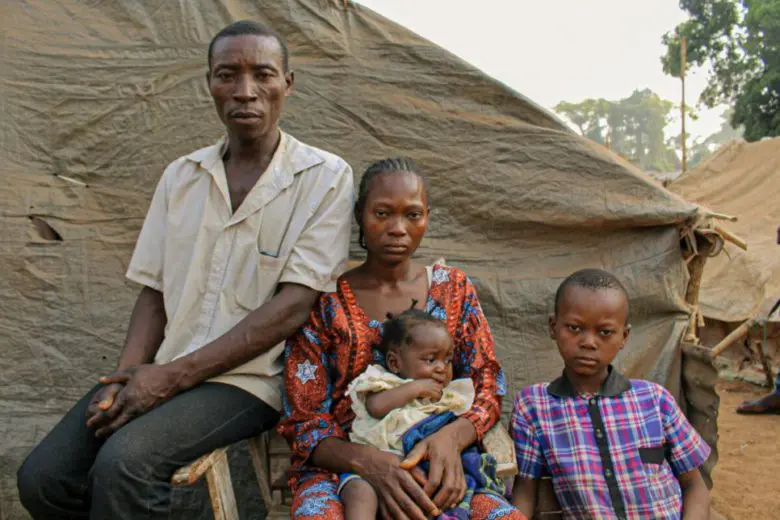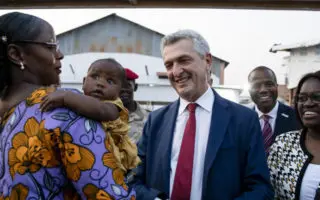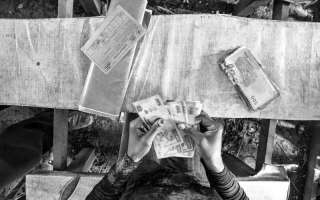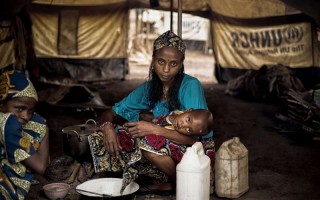
Central African refugee Boris, 37, sits with his wife Christine and their two children outside their makeshift shelter in Ndu village, in the Democratic Republic of Congo. © UNHCR/Fabien Faivre
As rains approach, the race is on to get aid to thousands seeking safety in a remote village in neighbouring Democratic Republic of the Congo.
By Fabien Faivre in Ndu village, the Democratic Republic of the Congo.
Twice in his long life, 74-year-old Joseph had to flee conflict in the Central African Republic. When violence erupted ahead of the country’s elections in December, he knew it would be a third.
“There was war, so we had to flee. It is the third time I am fleeing my country. I am tired. At my age, you can imagine that I am not only tired but I feel despair and anguish,” says Joseph wearily.
He had previously fled his hometown of Bangassou, some 700 kilometres from the capital Bangui, to the Democratic Republic of the Congo (DRC) in 2013. He later returned home but had to flee again in 2018 because of conflict. And in January 2021, Joseph and his family had no choice but to escape again.
The insecurity and violence surrounding last December’s elections have forced over 100,000 people like him to flee – some into neighbouring Cameroon, Chad, the DRC and the Republic of the Congo, while around 100,000 people are displaced inside CAR.
“It is the third time I am fleeing my country. I am tired.”
Arrivals into the DRC have reached 92,000, according to local authorities. So far, UNHCR, the UN Refugee Agency, and its government partner have registered over 22,000 people and will update the population figures based on actual registrations.
Joseph and thousands of others found safety in Ndu, a remote village located on the other side of the Mbomou river which borders CAR in Bas Uele Province, in northern DRC. Most of them arrived exhausted after crossing the border river, with nothing but the clothes they were wearing. UNHCR, has warned that tens of thousands face dire conditions, as many are without basic needs like food, water, medical assistance and shelter.
Makeshift shelters that offer little protection from rain, wind, and the scorching sun have mushroomed along the main road in Ndu. Some families have taken refuge in abandoned houses and the village’s cramped school, while others have no option but to sleep out in the open.
Louise, 75, lives with a disability and can only walk with crutches. The journey to find safety was especially hard on her
“I heard gun shots. I fled to protect myself and my loved ones,” she says.
She now lives in a tiny shelter with 17 other family members. Tree branches and old pipes hold a plastic tarpaulin in place – this is where she stores the few belongings her family was able to carry in their hurry to leave.





